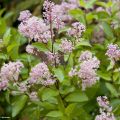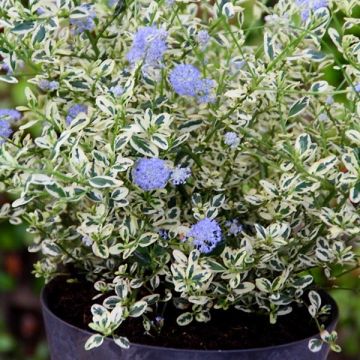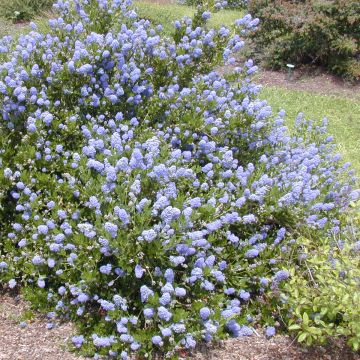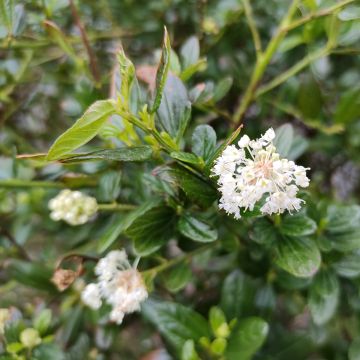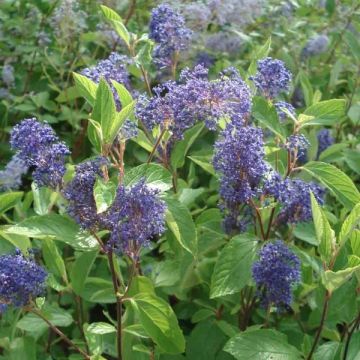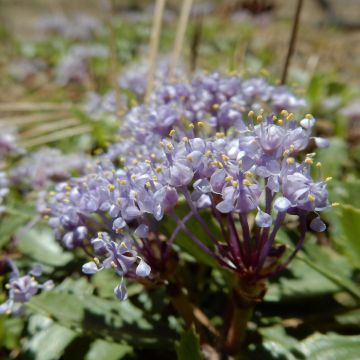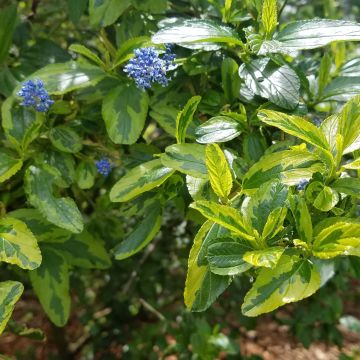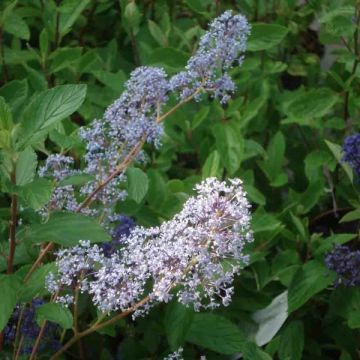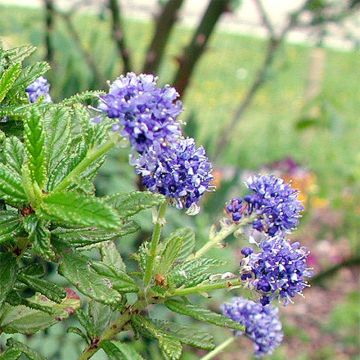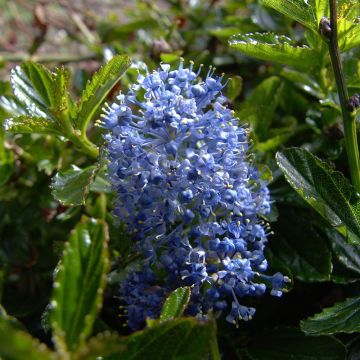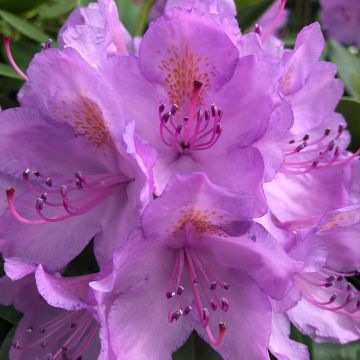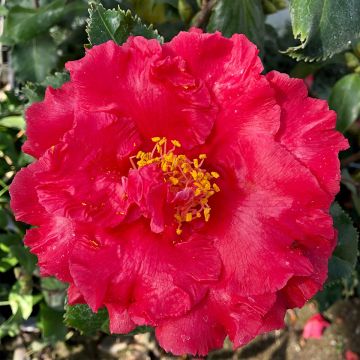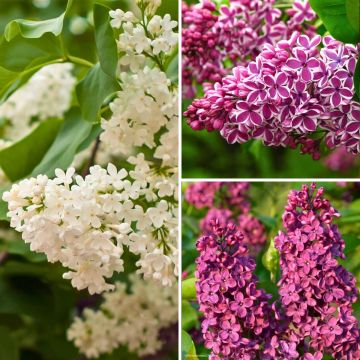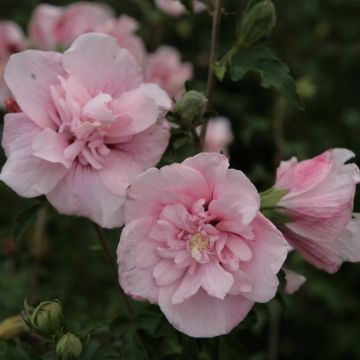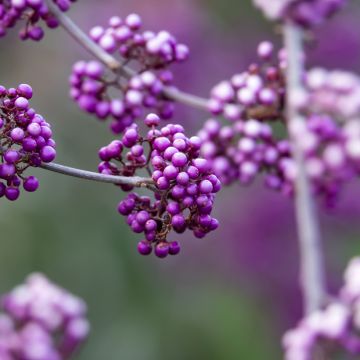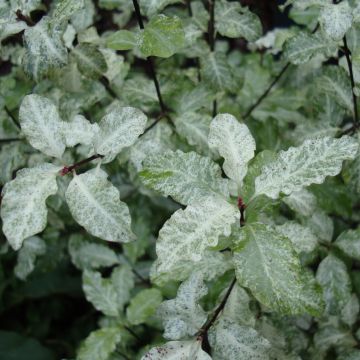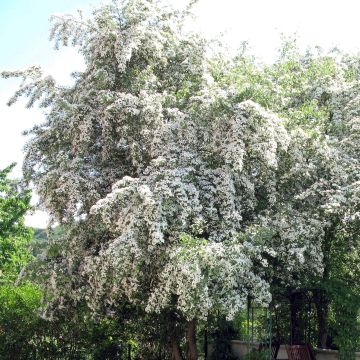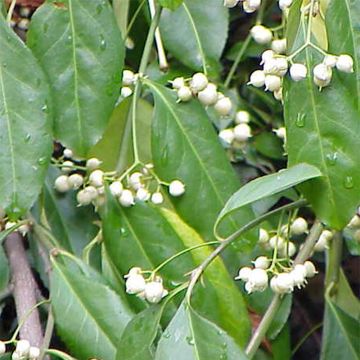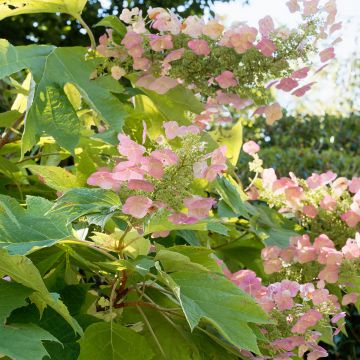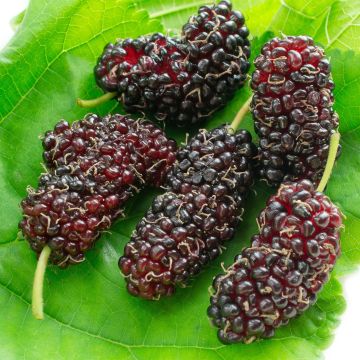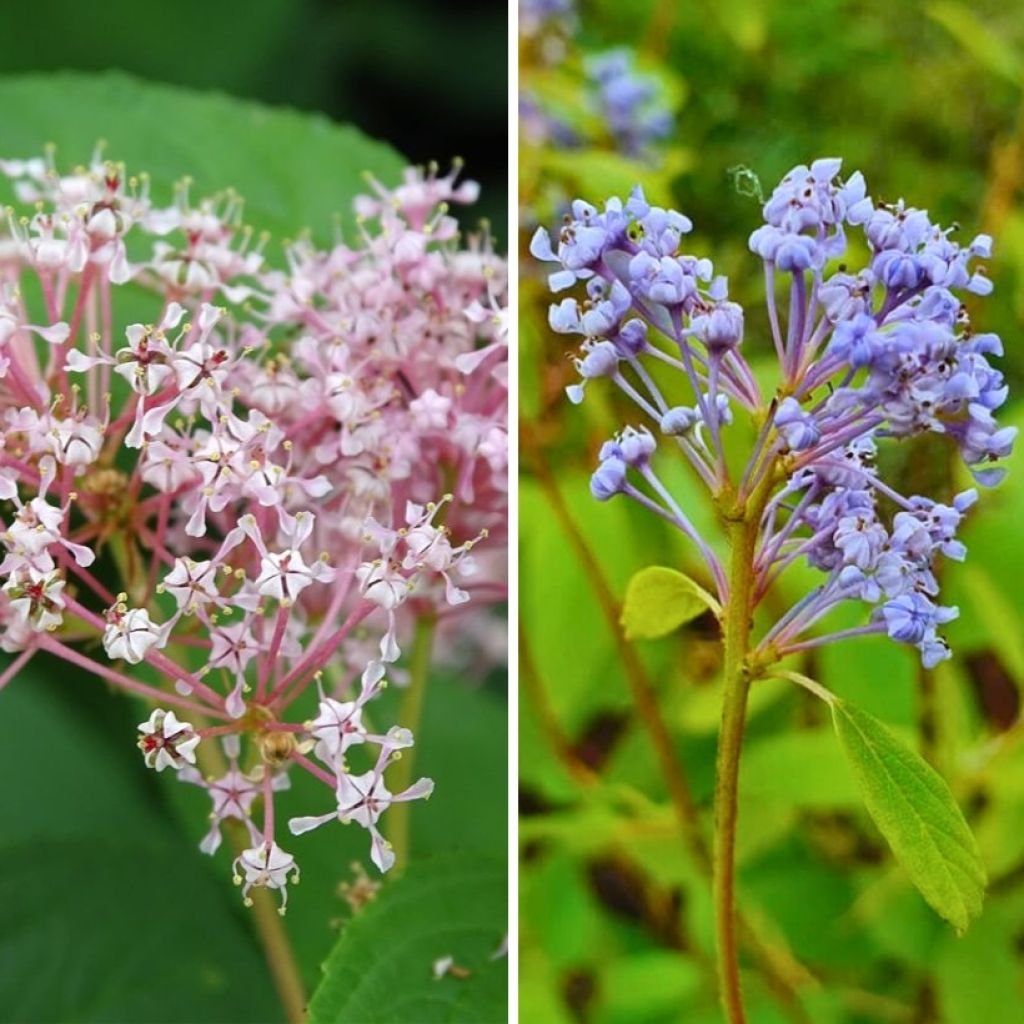

Hardy duo of pink and blue Ceanothus
Hardy duo of pink and blue Ceanothus
Ceanothus (x) pallidus 'Minmari' Marie Blue®, 'Minmarose' Marie Rose®
This item cannot be shipped to the selected country
Delivery charge from €5.90
More information
Schedule delivery date,
and select date in basket
This plant carries a 24 months recovery warranty
More information
We guarantee the quality of our plants for a full growing cycle, and will replace at our expense any plant that fails to recover under normal climatic and planting conditions.
From €5.90 for pickup delivery and €6.90 for home delivery
Express home delivery from €8.90.
Does this plant fit my garden?
Set up your Plantfit profile →
Collection items (2 plants)
Description
This Pair of Hardy Ceanothus brings together two excellent varieties. Resistant to cold, bushy yet graceful, deciduous to semi-evergreen in winter, these bushes bloom in summer. Their long flowering period is from July to early September. The light inflorescences are composed of tiny, slightly fragrant and nectar-rich flowers. Then come small, shiny dark red, quite decorative fruits at the end of the season. They will enhance your garden, as well as your balconies and terraces, when planted in a large container.
The duo consists of:
1 Ceanothus Marie Blue 'Minmari': flowers are mauve-blue when they bloom, quickly fading to sky blue.
1 Ceanothus Marie Rose 'Minmarose': flowers are a tender pink.
These two ceanothus are most often used in shrub borders or hedges. Unlike evergreen ceanothus, they thrive in most regions (even quite cold ones) where the summer is not too dry. They are planted in October-November or March-April, with 80 cm spacing between each plant. It is easy to create a diverse small hedge with this pair, along with dwarf lilacs ('Bloomerang Dark Purple', Chinese Lilac 'Superba'), Japanese quinces, and small mock oranges, for example. They are easy to grow in ordinary, well-prepared garden soil, and they can withstand temperatures as low as -15°C, or even lower. Their delightful flowering attracts bees and many pollinating insects.
Report an error about the product description
Plant habit
Flowering
Foliage
Botanical data
Ceanothus
(x) pallidus
'Minmari' Marie Blue®, 'Minmarose' Marie Rose®
Rhamnaceae
Cultivar or hybrid
Other Ceanothus
Planting and care
Hardy down to a minimum of -15°C once mature, Ceanothus may be susceptible to severe frost. Plant in a sunny location, sheltered from the wind, and protect young plants in case of extreme cold. It requires a fairly well-draining soil, as it dislikes excessive moisture. This bush prefers fertile soil, enriched with compost. It can tolerate all types of soil except for very chalky, excessively dry, or overly clayey soils. Pruning should be done in March.
This bush is not suitable for Mediterranean climates (unlike its evergreen cousins), which are much too dry and hot in summer.
Planting period
Intended location
Care
This item has not been reviewed yet - be the first to leave a review about it.
Hedge shrubs
Haven't found what you were looking for?
Hardiness is the lowest winter temperature a plant can endure without suffering serious damage or even dying. However, hardiness is affected by location (a sheltered area, such as a patio), protection (winter cover) and soil type (hardiness is improved by well-drained soil).

Photo Sharing Terms & Conditions
In order to encourage gardeners to interact and share their experiences, Promesse de fleurs offers various media enabling content to be uploaded onto its Site - in particular via the ‘Photo sharing’ module.
The User agrees to refrain from:
- Posting any content that is illegal, prejudicial, insulting, racist, inciteful to hatred, revisionist, contrary to public decency, that infringes on privacy or on the privacy rights of third parties, in particular the publicity rights of persons and goods, intellectual property rights, or the right to privacy.
- Submitting content on behalf of a third party;
- Impersonate the identity of a third party and/or publish any personal information about a third party;
In general, the User undertakes to refrain from any unethical behaviour.
All Content (in particular text, comments, files, images, photos, videos, creative works, etc.), which may be subject to property or intellectual property rights, image or other private rights, shall remain the property of the User, subject to the limited rights granted by the terms of the licence granted by Promesse de fleurs as stated below. Users are at liberty to publish or not to publish such Content on the Site, notably via the ‘Photo Sharing’ facility, and accept that this Content shall be made public and freely accessible, notably on the Internet.
Users further acknowledge, undertake to have ,and guarantee that they hold all necessary rights and permissions to publish such material on the Site, in particular with regard to the legislation in force pertaining to any privacy, property, intellectual property, image, or contractual rights, or rights of any other nature. By publishing such Content on the Site, Users acknowledge accepting full liability as publishers of the Content within the meaning of the law, and grant Promesse de fleurs, free of charge, an inclusive, worldwide licence for the said Content for the entire duration of its publication, including all reproduction, representation, up/downloading, displaying, performing, transmission, and storage rights.
Users also grant permission for their name to be linked to the Content and accept that this link may not always be made available.
By engaging in posting material, Users consent to their Content becoming automatically accessible on the Internet, in particular on other sites and/or blogs and/or web pages of the Promesse de fleurs site, including in particular social pages and the Promesse de fleurs catalogue.
Users may secure the removal of entrusted content free of charge by issuing a simple request via our contact form.
The flowering period indicated on our website applies to countries and regions located in USDA zone 8 (France, the United Kingdom, Ireland, the Netherlands, etc.)
It will vary according to where you live:
- In zones 9 to 10 (Italy, Spain, Greece, etc.), flowering will occur about 2 to 4 weeks earlier.
- In zones 6 to 7 (Germany, Poland, Slovenia, and lower mountainous regions), flowering will be delayed by 2 to 3 weeks.
- In zone 5 (Central Europe, Scandinavia), blooming will be delayed by 3 to 5 weeks.
In temperate climates, pruning of spring-flowering shrubs (forsythia, spireas, etc.) should be done just after flowering.
Pruning of summer-flowering shrubs (Indian Lilac, Perovskia, etc.) can be done in winter or spring.
In cold regions as well as with frost-sensitive plants, avoid pruning too early when severe frosts may still occur.
The planting period indicated on our website applies to countries and regions located in USDA zone 8 (France, United Kingdom, Ireland, Netherlands).
It will vary according to where you live:
- In Mediterranean zones (Marseille, Madrid, Milan, etc.), autumn and winter are the best planting periods.
- In continental zones (Strasbourg, Munich, Vienna, etc.), delay planting by 2 to 3 weeks in spring and bring it forward by 2 to 4 weeks in autumn.
- In mountainous regions (the Alps, Pyrenees, Carpathians, etc.), it is best to plant in late spring (May-June) or late summer (August-September).
The harvesting period indicated on our website applies to countries and regions in USDA zone 8 (France, England, Ireland, the Netherlands).
In colder areas (Scandinavia, Poland, Austria...) fruit and vegetable harvests are likely to be delayed by 3-4 weeks.
In warmer areas (Italy, Spain, Greece, etc.), harvesting will probably take place earlier, depending on weather conditions.
The sowing periods indicated on our website apply to countries and regions within USDA Zone 8 (France, UK, Ireland, Netherlands).
In colder areas (Scandinavia, Poland, Austria...), delay any outdoor sowing by 3-4 weeks, or sow under glass.
In warmer climes (Italy, Spain, Greece, etc.), bring outdoor sowing forward by a few weeks.


































